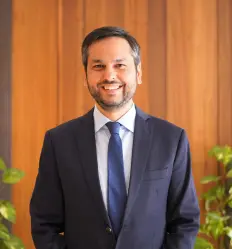


The Brookings Foreign Policy program is the leading center of high-quality, policy-relevant scholarship advancing actionable solutions to the major challenges to international peace and security. Brookings Foreign Policy scholars engage in in-depth, nonpartisan research and analysis aimed at informing policymakers and the public debate and developing concrete ideas for addressing the world’s toughest problems.

Samantha Gross, Ryan Beane
February 26, 2026

Tanvi Madan
February 26, 2026

Bonny Lin, Thomas J. Christensen, John Culver, Jonathan A. Czin, M. Taylor Fravel, Allie Matthias, Joel Wuthnow, Brian Hart, Suyash Desai +4 more
February 24, 2026

Scott R. Anderson, Sarah A. Binder, Tonantzin Carmona, Kyle Chan, Vanda Felbab-Brown, William G. Gale, William A. Galston, Daniel S. Hamilton, Ben Harris, Kari Heerman, Aaron Klein, Robert E. Litan, Michael E. O’Hanlon, Elena Patel, Sanjay Patnaik, Mira Rapp-Hooper, Jessica Riedl, Peter M. Shane, Mireya Solís +14 more
February 24, 2026
This is potentially a seismic shift in Chinese politics under Xi, and how he governs – this really demonstrates nobody in that system is safe, truly… [The purge has] reached a crescendo..."

Constantino Xavier breaks down what the upcoming national election means for the future of Bangladesh on the BBC’s “The Inquiry.”

Suzanne Maloney joined Moment Magazine for a conversation on Israel, Gaza, Iran, and the changing landscape of the Middle East.
Suzanne Maloney was featured on NPR’s “Morning Edition” to discuss U.S. negotiations with Iran and military buildup in the region.
It is possible that the Indian trade agreement with the EU… incentivized Washington to get to yes.
The devil will be in the details of the [U.S.-India trade] deal, but it’s another demonstration that India is pragmatic rather than purist about autonomy. It is willing to make certain..."
[Takaichi is] betting on her high levels of public approval and fragmentation among the opposition parties to carry the day.

No one can assume Iran won’t respond and probably respond as they did on their own streets, and make it as ugly and violent as possible… [Trump] does not want to get into a protracted..."
As far as the corruption problem goes, I think that Xi has concluded that he had no other option but to cull virtually the entire generational cohort at the top [of the People’s..."

Zhang [Youxia]’s removal means that truly nobody in the leadership is safe now… I think corruption concerns are probably real, though those are typically more a pretext to remove..."






2026
Online only
Tuesday, 2:00 pm - 3:00 pm EST
